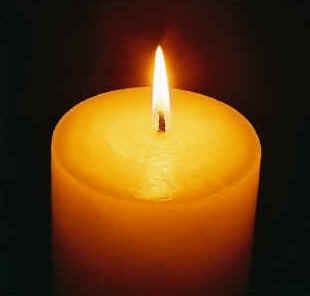Remembrance is Resistance
Where were you three years ago when you got the news the world was shutting down?
I was leaving my classroom when I got the news alert on my phone that the governors of Ohio and Maryland had closed their schools, and the NBA had canceled their games. The announcement that New York City’s schools would close would come a few days later. The days waiting for that announcement and the weeks after each represented a unique type of torment.
Why are we talking about this? Haven’t we done this already?
Because another year has passed, three years in total, since COVID transformed life in the United States, and it seems our leaders have little intention to acknowledge it. In the absence of leaders willing to create space for memory and grief, this work falls to us then.
I know this is not easy or appealing. I’m currently reading Feral City: On Finding Liberation in Lockdown New York by Jeremiah Moss. As my mind travels back to that time, I feel the stress, fear, and anger returning to my body. Nonetheless, remembering is necessary. We deserve to remember what we’ve gone through.
First of all, we should remember to honor the people we lost. To use the New York Times’ language in May 2020, we have experienced an “incalculable loss.” In the United States, 1,111,342 people have died from COVID, according to the WHO on the day I write this. This number includes over 100,000 lives lost in the past year. And each death caused a ripple. According to one 2021 study, more than 140,000 children in the U.S. lost a primary or secondary caregiver to COVID.
But statistics like this can only help us so much in making sense of the loss. These numbers are hard to make sense of logically and emotionally. Over a million brothers, sisters, moms, dads, spouses, grandparents… each leaving behind people who loved them. A loss of this size deserves time and space to be felt.
We need to remember March 2020 to honor our individual grief as well. There were countless versions of early COVID life. Some of us felt trapped and alone, and others felt trapped in a crowded home. Some lost work while others had to juggle work alongside supporting remote schooling. Some of us got sick, and others lived in fear of the virus. For a time, so much felt scary and uncertain. Some of us have been able to recover, but not all of us have.
Trauma doesn’t go away if we ignore it. And if we do, it finds ways to creep into our lives in other ways. The arrival of COVID-19 was undoubtedly traumatic for all of us, even if it was in different ways. We deserve to remind ourselves that we lived through something scary and hard, but we’re still here!
Whatever ritual feels right, I encourage us all to try something. Let’s not let this moment pass without taking time to pause. Let’s remember so we can honor the dead, sit with our hurt, and reconnect to the possibilities of a better world.
I was leaving my classroom when I got the news alert on my phone that the governors of Ohio and Maryland had closed their schools, and the NBA had canceled their games. The announcement that New York City’s schools would close would come a few days later. The days waiting for that announcement and the weeks after each represented a unique type of torment.
Why are we talking about this? Haven’t we done this already?
Because another year has passed, three years in total, since COVID transformed life in the United States, and it seems our leaders have little intention to acknowledge it. In the absence of leaders willing to create space for memory and grief, this work falls to us then.
I know this is not easy or appealing. I’m currently reading Feral City: On Finding Liberation in Lockdown New York by Jeremiah Moss. As my mind travels back to that time, I feel the stress, fear, and anger returning to my body. Nonetheless, remembering is necessary. We deserve to remember what we’ve gone through.
First of all, we should remember to honor the people we lost. To use the New York Times’ language in May 2020, we have experienced an “incalculable loss.” In the United States, 1,111,342 people have died from COVID, according to the WHO on the day I write this. This number includes over 100,000 lives lost in the past year. And each death caused a ripple. According to one 2021 study, more than 140,000 children in the U.S. lost a primary or secondary caregiver to COVID.
But statistics like this can only help us so much in making sense of the loss. These numbers are hard to make sense of logically and emotionally. Over a million brothers, sisters, moms, dads, spouses, grandparents… each leaving behind people who loved them. A loss of this size deserves time and space to be felt.
We need to remember March 2020 to honor our individual grief as well. There were countless versions of early COVID life. Some of us felt trapped and alone, and others felt trapped in a crowded home. Some lost work while others had to juggle work alongside supporting remote schooling. Some of us got sick, and others lived in fear of the virus. For a time, so much felt scary and uncertain. Some of us have been able to recover, but not all of us have.
Trauma doesn’t go away if we ignore it. And if we do, it finds ways to creep into our lives in other ways. The arrival of COVID-19 was undoubtedly traumatic for all of us, even if it was in different ways. We deserve to remind ourselves that we lived through something scary and hard, but we’re still here!
A third reason I want us to remember March 2020 is to connect to the lessons we were taught at the time. When COVID hit, there was an unprecedented widespread openness to change. We saw so many ways that our systems and institutions were not set up to keep us safe. We saw that something else was possible. Feelings of solidarity and acts of interdependence peaked.
This is exactly why powerful people have no desire to remember that time. If we spend too much time remembering, we may start, once again, demanding more. Instead, we are being pushed to “return to normal” and forget all the ways “normal” hurts us.

I’m biased, but I have always found Jewish tradition to be pretty good at remembrance and grief. In Jewish tradition, we light a yahrtzeit candle each year on the anniversary of a loved one’s death. I think this affirms what we all know, that loss does not disappear conveniently with time, and in fact, it often reappears on an anniversary. As we mark the 3rd anniversary of COVID-19 upending life in the U.S., it would be valuable to acknowledge this moment.
Some ideas we can try to create space for remembering and grieving include:
This is exactly why powerful people have no desire to remember that time. If we spend too much time remembering, we may start, once again, demanding more. Instead, we are being pushed to “return to normal” and forget all the ways “normal” hurts us.

I’m biased, but I have always found Jewish tradition to be pretty good at remembrance and grief. In Jewish tradition, we light a yahrtzeit candle each year on the anniversary of a loved one’s death. I think this affirms what we all know, that loss does not disappear conveniently with time, and in fact, it often reappears on an anniversary. As we mark the 3rd anniversary of COVID-19 upending life in the U.S., it would be valuable to acknowledge this moment.
Some ideas we can try to create space for remembering and grieving include:
- Light a candle or make a fire
- Listen to a song that reminds you of a time, place, or person
- Write a letter to a loved one
- Write a letter to your former self or future self
- Journal
- Take a bath
- Create a piece of art
Whatever ritual feels right, I encourage us all to try something. Let’s not let this moment pass without taking time to pause. Let’s remember so we can honor the dead, sit with our hurt, and reconnect to the possibilities of a better world.
This post originally appeared on my substack, Hope for the Best.


Comments